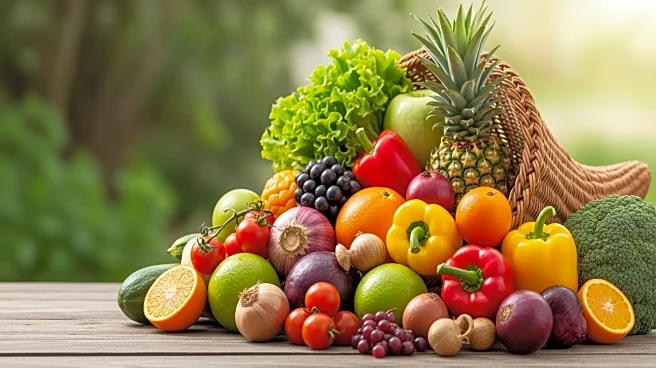What's Happening?
The South African Food Security Index 2025, compiled by Stellenbosch University for the Shoprite Group, indicates a significant recovery in food security from 2023 to 2024. Despite this improvement, 23%
of South African children still live in severe food poverty, highlighting ongoing challenges. The index, released on World Food Day, shows an increase from 44.9 in 2023 to 56.4 in 2024, driven by lower food inflation, increased dietary diversity, and expanded school feeding schemes. However, 61.7% of households remain unable to afford a healthy diet, underscoring the need for continued focus on food security.
Why It's Important?
The improvement in South Africa's food security index is crucial as it reflects efforts to address hunger and malnutrition in a country capable of producing and exporting food. The persistent issue of food poverty, especially among children, poses significant social and economic challenges. Addressing these issues requires collaboration between business, government, and civil society. The Shoprite Group's initiatives, such as subsidizing bread prices, aim to mitigate food inflation and improve accessibility, but broader systemic changes are necessary to ensure food security for all.
What's Next?
Future efforts will likely focus on enhancing food accessibility and affordability, with potential policy adjustments and increased collaboration among stakeholders. The Shoprite Group's commitment to controlling food inflation and supporting dietary diversity will continue to play a role. Monitoring the index's progress and addressing regional disparities, such as those in the Free State, will be essential in reducing food insecurity. Stakeholders may also explore innovative solutions to improve food distribution and support vulnerable populations.
Beyond the Headlines
The ethical implications of food insecurity in a food-producing nation raise questions about resource allocation and social justice. Long-term solutions may involve addressing systemic inequalities and ensuring equitable access to food resources. Cultural shifts towards sustainable food practices and increased awareness of dietary diversity could also contribute to improved food security.








